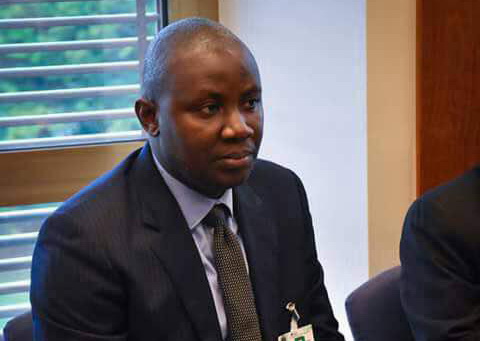
‘NaBCo applicants need no intervention on their behalf’
With five days to the close of applications for the Nation Builders Corps (NaBCo) programme, 141,000 graduates have applied to be placed under it.
The Lead of the programme, Dr Anyars Ibrahim, told the Daily Graphic on Sunday that all the applicants would be given a fair opportunity to justify themselves to be selected into the modules they had applied for.
Advertisement
He said there was a process that would guide recruitment onto the scheme and explained that procedures, such as validation, interviews and other processes, to determine whether an applicant was suitable for a module or not would be followed through.
Interview panel
Dr Ibrahim said the interview panel in each district would consist of a representative of the district assembly, a member of the NaBCo Secretariat, an official of the National Service Secretariat, a representative from a module implementation partner and a representative from the Employment and Labour Relations Ministry.
He stated that the only preoccupation of the interview panel would be to make judgement on the suitability of applicants to be placed in their chosen modules.
“In all cases, applicants will be validated and processed through the interview,” he stressed.
Dr Ibrahim said successful applicants would receive text notifications on their mobile phones within three days of the interview, explaining that the notification would advise on the next steps: “how to print your Engagement Letter from the web portal”.
He said the system had been designed to be fair to every applicant, hence the need for applicants to be confident that they could make it through to placement without requiring any undue intervention on their behalf.
“There is no protocol list anywhere; do not be deceived into paying anyone for such favours, as there is none,” he advised.
Orientation
Dr Ibrahim said upon the submission of their letters to the districts of placement, successful applicants would be processed to undergo five days of orientation.
“In all districts, the date for NaBCo orientation is from July 30 to August 3, 2018. This shall include a military component on resilience, endurance, positive attitude, discipline and responsibility,” he explained.
He said each trainee would be given a three-year contract under a work-and-learning arrangement.
He explained that for every four weeks of work, one week would be dedicated to skills development and training.
“This results in a cumulative 12-week worth of core training; in addition to the on-the-job training, every year,” he added.
Dr Ibrahim said monitoring and evaluation of trainees would be done against the standards set for training and the skills acquisition expected of trainees.
“To this end, a partnership has been initiated among NaBCo, COTVET and a university partner to evaluate trainees, leading to an exit certification upon completion at the end of the three years,” he said.
Applicants
On applicants who might not get placement in the first round of 100,000 slots, he said they would be put on the waiting list and in the event that some of the successful applicants did not turn up after placement, those on the waiting list would be posted to those areas.
NaBCo
President Nana Addo Dankwa Akufo-Addo, on May 1, this year, launched the NaBCo in Kumasi as an initiative by the government to provide employment for 100,000 unemployed graduates this year.
The beneficiaries are initially expected to earn a monthly stipend of GH¢700 each.
The programme will operate seven modules designed to meet the pressing needs of the nation and the beneficiaries will be engaged for three years.
Modules
The modules are Feed Ghana, Educate Ghana, Revenue Ghana, Heal Ghana, Enterprise Ghana, Digitise Ghana and Governance Ghana.
Under the Feed Ghana module, the graduates will be engaged as agricultural extension officers to help farmers, while under the Educate Ghana module, the beneficiaries will be posted to senior high schools (SHSs) to teach, especially Science and Mathematics.
In the case of the Revenue Ghana module, they will work with the Ghana Revenue Authority to help in the collection of revenue, while under the Heal Ghana module, nurses who have been at home for years without jobs will be engaged to work in the health sector.
In respect of the Enterprise Ghana module, graduates will be assigned to various private sector enterprises for jobs and skills training, as well as development, while in the Digitise Ghana module, they will be posted to the IT sector for the Digital Ghana and the transformation agenda, where they will be attached to the National Identification Authority (NIA), the Ghana Post, the Births and Deaths Registry or the Land Title Registry to work.
With regard to the Governance Ghana module, the graduates will be attached to various local authorities.
The module qualification and recruitment processes are available on the NaBCo website, www.nabco.gov.gh.




